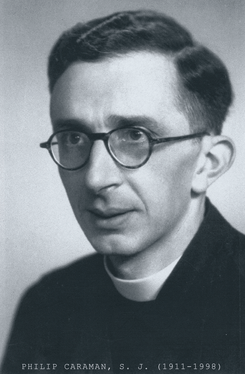 HOSE WHO HAVE READ the wonderful autobiography of Fulton J. Sheen know about the relationship Sheen had with Msgr. Ronald Knox. Early in Sheen’s life, they worked together in England. Sheen loved the Bible translation created by Knox, and felt it was “the best”—as he said in Life of Christ (1958). In a 2010 article, Fr. George Rutler wrote:
HOSE WHO HAVE READ the wonderful autobiography of Fulton J. Sheen know about the relationship Sheen had with Msgr. Ronald Knox. Early in Sheen’s life, they worked together in England. Sheen loved the Bible translation created by Knox, and felt it was “the best”—as he said in Life of Christ (1958). In a 2010 article, Fr. George Rutler wrote:
Sheen told a friend of mine—in a moment perhaps made candid by the mellowing of years—that anything he had ever said of significance was taken from either Knox or Chesterton.
You can download the complete FULTON J. SHEEN SUNDAY MISSAL at this link. The year it appeared (1961) was quite ominous for the Sacred liturgy, but also for the book’s primary editor, Fr. Philip Caraman. More will said about this famous Jesuit below.
Turning to the final page of the Sheen Missal, we find this page:


 THERE’S ONLY ONE PROBLEM: that translation is not by Knox. When you examine it, you’ll see that it’s verbatim the translation of Fr. James Aylward (1813-1872). Shouldn’t they have known that? They made such a fuss over Knox’s estate giving permission…
THERE’S ONLY ONE PROBLEM: that translation is not by Knox. When you examine it, you’ll see that it’s verbatim the translation of Fr. James Aylward (1813-1872). Shouldn’t they have known that? They made such a fuss over Knox’s estate giving permission…
When we first released the Sheen Missal, I pointed out that it was highly doubtful Archbishop Sheen had anything to do with its creation, except for the Preface. Yet, since it was put out under his name, he had an obligation to look it over. But who is this mysterious editor, Fr. Philip Caraman? It turns out he was a famous scholar—who did many things—and was perhaps best known for his role in the cause of the 40 Martyrs of England & Wales.
Fr. Caraman did a truly amazing job editing the Sheen Missal. However, he soon found himself in hot water with the other editor—Jesuit Fr. James Walsh—over a completely unrelated matter. I won’t go into the details (because they could easily fill a book) but Fr. Caraman was removed from his post in 1963 for allegedly fostering an inappropriate relationship with the daughter of his close friend, Evelyn Waugh. 1
Caraman was also an expert on the writings of Msgr. Ronald Knox—so how could such an error occur? I have no idea. I can say, though, that poetry often makes use of “cento” technique. That means verses may be stolen from or imitate a previous work. I was shocked to discover how frequently this was done in English renderings of Latin poetry. Those who have encountered Analecta hymnica (Dreves & Blume) realize that Latin poetry does this, too. Even when specific verses are not borrowed, they can serve as a model. For example, compare “Gratia Tua Spiritus” with the “Veni Creator Spiritus” of Pentecost. Dealing with cento all day, it’s easy to become confused.
Speaking of poetry, I’ve been amazed to learn how often those who render Latin hymns into English change their minds. Caswall’s earlier translations are often greatly modified, as were St. Robert Southwell’s. I once read a review of BREVIARY AND MISSAL HYMNS by Fr. John Fitzpatrick which made the following claim:
Lauda Sion is well rendered by Father Fitzpatrick as a whole; but the second line of the first verse has too obviously been coerced by the tyranny of rhyme. The translation begins:
Sion, praise thy Lord and Saviour,
Praise thy Shepherd’s dear behaviour;
Hymn and canticle upraise.
They are correct. The phrase “dear behavior” is truly horrible … but Fr. Fitzpatrick’s version does not begin like that. Perhaps he changed his mind in some later edition.
I will close these reflections by sharing a photo of Rev. Philip Caraman taken in 1963:


NOTES FROM THIS ARTICLE:
1 I don’t know whether these accusations were true. The evidence I’ve seen against Caraman strikes me as very weak. It appears to have been a way for Caraman’s jealous enemies to get rid of him.
